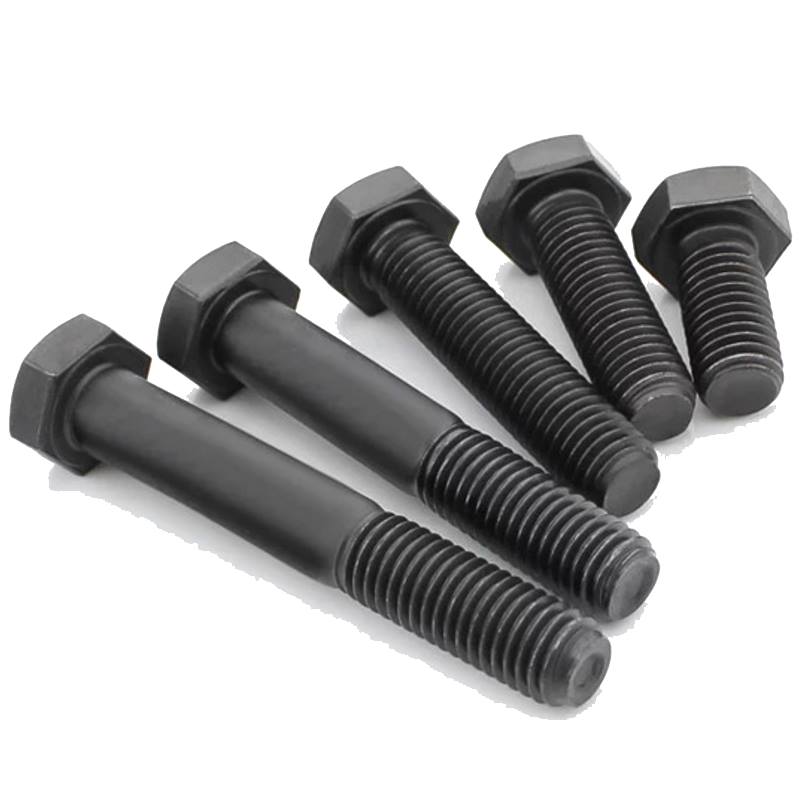High-Quality Thumb Screw Bolts Manufacturer | Precision Fasteners
Sep . 17, 2024 09:44 Back to list
High-Quality Thumb Screw Bolts Manufacturer | Precision Fasteners
The Overview of Thumb Screw Bolts Manufacturing
In the realm of fasteners, thumb screw bolts hold a unique position, combining ease of use with functional versatility. These fasteners are specially designed for applications requiring quick adjustments, fine tuning, or securing objects without the need for tools. This article explores the manufacturing process, applications, and significance of thumb screw bolts.
Understanding Thumb Screw Bolts
Thumb screw bolts, often characterized by their knurled heads, are employed in a variety of applications where manual adjustment is favorable. The design allows users to tighten or loosen the bolt with their fingers, making them an excellent choice in scenarios where time and efficiency are critical. These screws come in various sizes, materials, and thread options, catering to diverse needs across different industries.
The Manufacturing Process
The manufacturing process of thumb screw bolts is intricately detailed, requiring precision and quality control at every stage
. It typically involves the following steps1. Material Selection The first step in producing thumb screw bolts is selecting the appropriate material. Common materials include stainless steel, brass, and various alloys, each chosen based on the intended application and environmental conditions.
2. Forming Once the material is procured, it is cut and shaped into the basic form of the bolt. This might involve processes such as forging or machining. In machining, the raw material is precisely cut to create the desired dimensions.
thumb screw bolts factory

3. Threading After the initial forming, the next critical step involves threading the bolt. This is typically done using CNC (Computer Numeric Control) machines that ensure high precision and consistency in the thread pattern.
4. Knurling The knurled feature of the thumb screw is added during this stage. Knurling not only enhances grip but also adds a distinct aesthetic to the bolts. This process can be done via a rolling or cutting technique that imbues the surface with a textured pattern.
5. Finishing Once the threads and knurling are complete, the bolts undergo finishing processes, which may include polishing, coating, or plating. The finishing improves the corrosion resistance and durability of the bolts, ensuring they maintain their performance in a variety of environments.
6. Quality Control Before packaging, each bolt goes through quality control checks. This involves inspections for dimensional accuracy, thread integrity, and surface finish to ensure that the products meet industry standards and client specifications.
Applications Across Industries
Thumb screw bolts find their place in numerous applications across various sectors. They are commonly used in furniture assembly, mechanical devices, electronic devices, and prototype assembly. Their capability for quick and secure fastening makes them essential in situations where adjustments may need to be made frequently, such as in lab equipment and adjustable mounts.
Conclusion
In conclusion, thumb screw bolts represent a crucial component in the fastener industry, distinguished by their design and functionality. The meticulous manufacturing process ensures high-quality products essential for various applications. As industries continue to evolve, the demand for such versatile fasteners will undoubtedly persist, highlighting the importance of manufacturers in meeting these needs. The effective combination of practicality and efficiency embodied by thumb screw bolts ensures their longevity in the marketplace, serving a vital role in both current and future innovations.
Latest news
-
Wire Bolts Suppliers: Durable & Reliable Fasteners for Every Project
NewsAug.25,2025
-
Premium Cabinet Bolts Supplier | Wholesale & Custom Solutions
NewsAug.24,2025
-
Reliable Axle Nuts Supplier | Quality & Precision Fasteners
NewsAug.23,2025
-
Durable Bolts for Lawn Mower Handle - Top Supplier & Manufacturer
NewsAug.22,2025
-
High-Quality Bolts for Lawn Mower Handle Supplier & Manufacturer
NewsAug.21,2025
-
Reliable Axle Nuts Supplier | High-Quality Automotive Parts
NewsAug.19,2025
